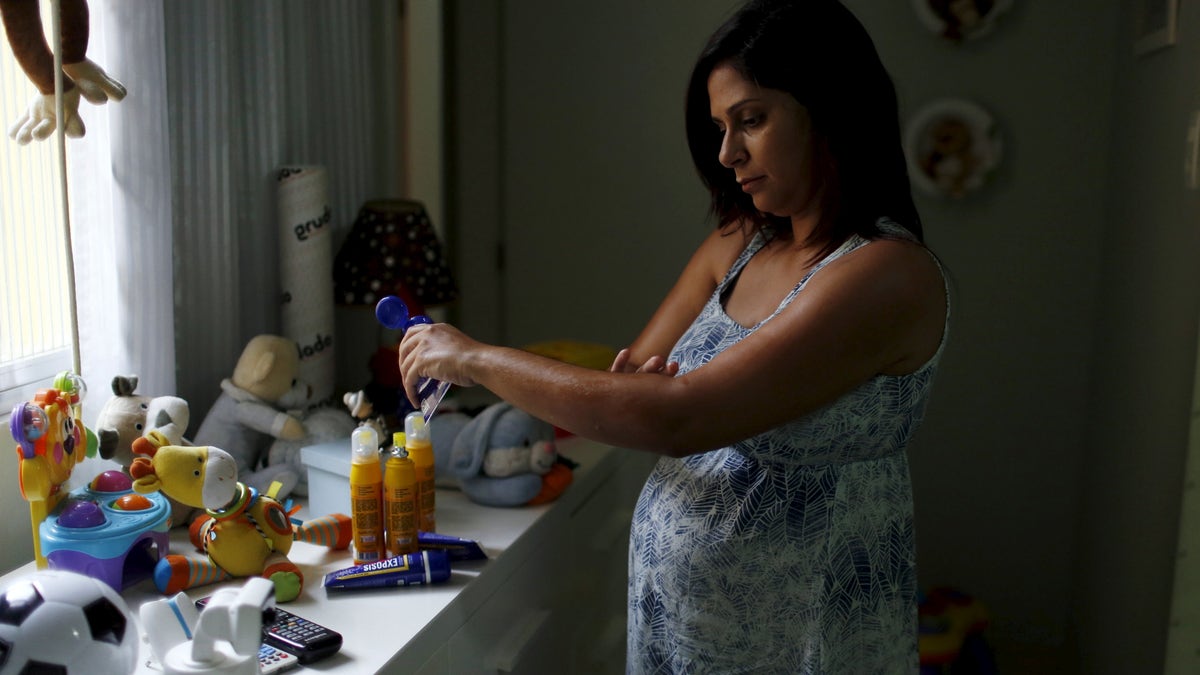
Gisele Felix, who is five months pregnant, applies repellent on her arm at her home in Rio de Janeiro, Brazil, January 28, 2016. Fear of the mosquito-borne Zika virus has Brazilians rushing to buy repellant, creating a shortage of some brands on pharmacy shelves and boosting sales for the industry - a trend some producers are preparing for elsewhere as the outbreak spreads. Picture taken January 28, 2016. REUTERS/Pilar Olivares - RTX25L1M
The Centers for Disease Control and Prevention (CDC) confirmed during a House panel Wednesday that it had identified Zika virus in tissue samples of two Brazilian babies who died of microcephaly, USA Today reported. More than 4,000 babies in Brazil have been born with the defect, which leads to an abnormally shaped head and a partially formed brain. One child in Hawaii, whose mother lived in Brazil during her pregnancy, has also been diagnosed with microcephaly.
“This is the strongest evidence to date that Zika is the cause of microcephaly [for these babies],” CDC Director Dr. Tom Frieden told members of the House Foreign Affairs Committee. Microcephaly is not exclusively linked to Zika, as other babies around the world who were not exposed to the virus have been born with the defect.
Frieden, who in the past has expressed skepticism of a link between the virus and birth defect, urged more caution Wednesday and said more tests would be needed before the CDC can confirm a causal effect.
"Zika is new, and new diseases can be scary, particularly when they can affect the most vulnerable among us," Frieden said.
As Zika has been linked to a reported 4,704 cases of microcephaly in Brazil, and nearly 100 cases of a nerve disorder that causes paralysis in Colombia, scientists are scrambling to create a vaccine to protect against the virus. Meanwhile, public health officials in the United States are bracing for original cases of Zika to appear, as the Aedes aegypti— the primary vector of Zika, a day-biting mosquito— already inhabits Gulf Coast states.
The CDC has advised pregnant women against traveling to more than two dozen Zika-afflicted regions in South and Central America, and the Caribbean. People who are not immunosuppressed— namely those who are not pregnant, are healthy, and who are not elderly or very young—will experience only mild symptoms like muscle and joint pain, and a fever, after being infected with Zika. Frieden said the virus usually leaves an individual’s blood within a week.
"Our goal really is to protect pregnant women," Frieden said during the panel. "That's our main priority right now."
